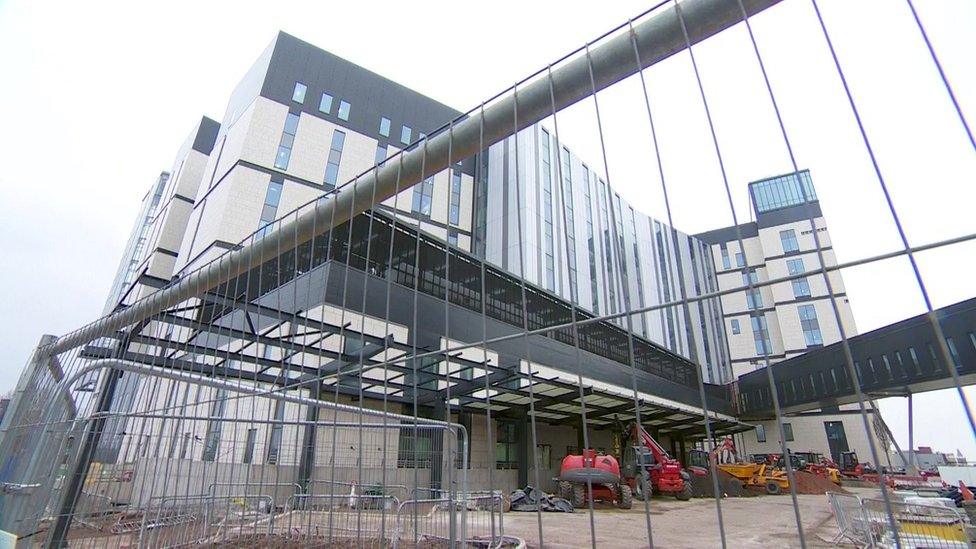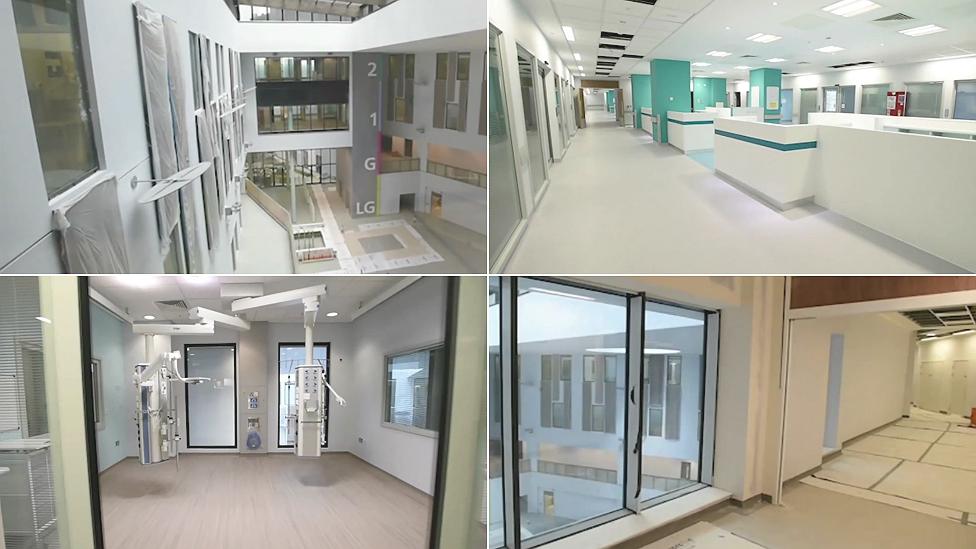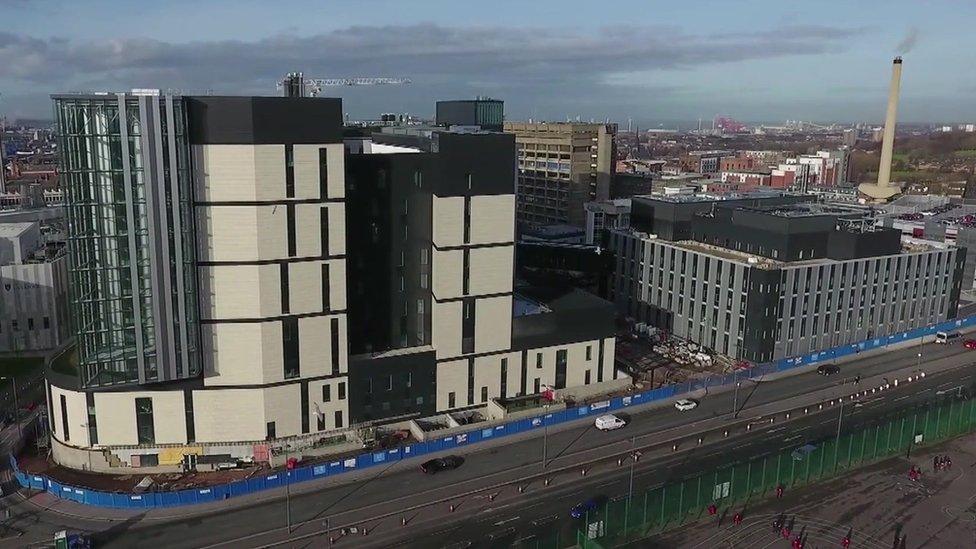Higher costs for Royal Liverpool Hospital hit by Carillion collapse
- Published

Work on the new Royal Liverpool Hospital building stopped when Carillion collapsed
The cost of completing a hospital where work stalled after construction giant Carillion collapsed is higher than previously anticipated.
The Royal Liverpool Hospital was originally due to open in March 2017 at a cost of £335m.
But this has been "re-estimated" to account for fixing "structural issues", the Royal Liverpool and Broadgreen University Hospitals Trust said.
A spokesman said the trust will now ask the government for additional funding.
Costs were "underestimated" following termination of a Private Finance Initiative (PFI) contract, documents released for a meeting of the trust, external said.
The 646-bed hospital was originally funded under a PFI where companies provide money for new hospitals and then charge annual fees.

Much of the work on the hospital was close to completion when Carillion collapsed
But that deal was scrapped and public money is to be used to finish the hospital, which is about 80% to 90% complete.
It is believed the problems were discovered when Laing O'Rourke was appointed last October to complete the building work.
'Severely troubled'
"Once these costs are completed, we will submit our business case to the Department of Health and Social Care, for them to approve the funding," the trust spokesman said.
He said "significant works" are "required to fix the structural issues that were identified" by Laing O'Rourke and external advisers.
"Following these assessments, the overall costs for completion have been re-estimated and they are higher than previously anticipated."
It was also revealed that construction consultants Gleeds has replaced Mace as the project manager on the new hospital.
A Unite spokesman said the change of consultants was "simply extraordinary" and "brings even greater uncertainty to this severely troubled project."
He said: "The revolving door of contractors and senior staff [the chief executive of the Trust is also leaving] is draining confidence from the project."
Unite said it was seeking to ensure that workers are not exploited when construction restarts.
- Published26 October 2018

- Published25 September 2018

- Published11 July 2018

- Published16 May 2018

- Published6 February 2018
